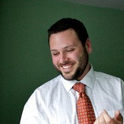- Community colleges -- Maryland,
- Remedial teaching -- Maryland,
- Academic achievement -- United States,
- Educational evaluation
Remedial courses at community colleges are designed to develop the skills of students who are underprepared for the academic rigor of college courses. A significant portion of students in Maryland and nationwide are assessed to need remedial coursework each year. In order to better prepare students for college courses and prevent the need for remediation, it is important to identify at-risk students before they arrive at college. This study used data from the Maryland Longitudinal Data System (MLDS) to examine the individual- and high school-level characteristics that predict the need for remediation in Maryland community colleges. The results indicate that after controlling for other characteristics, female students, Hispanic students, students in Special Education, and students who were eligible for free and reduced price meals (FARMS) were more likely to need remedial coursework in math or English at Maryland community colleges. After controlling for other characteristics, students who had a GPA of 3.0 or greater and students who took 2 or more courses with a grade of B or higher in high school were less likely to need remedial coursework in math and English. At the school level, after controlling for student-level characteristics, students who graduated from high schools with a higher percentage of students who were eligible for FARMS were more likely to need remedial coursework in math and English, whereas graduates from high schools with higher percentages of fifth-year graduates were less likely to need remedial coursework for math only. Policy implications and directions for future research are discussed.

Note: At the time of writing, Dr. Uretsky was affiliated with the University of Maryland, Baltimore.
© Maryland Longitudinal Data System Center 2018